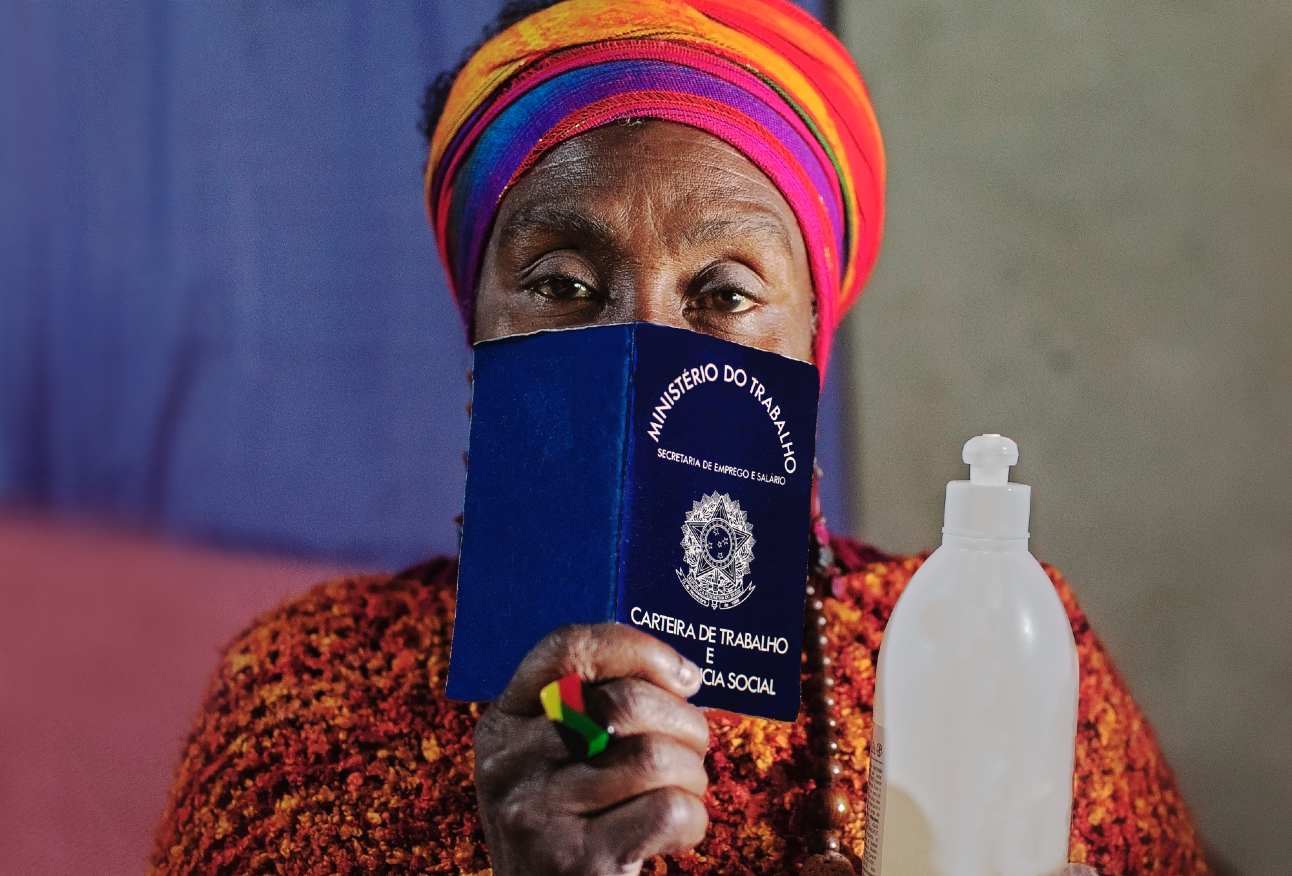Aimee Seligstein from the Legal Empowerment Fund explains how grassroots groups are helping people know, use, and shape the law.

What is legal empowerment?
Legal empowerment is a key pillar of human rights work. It is an approach that enables communities facing injustice to use legal mechanisms to pursue transformative improvements to laws and systems.
In other words, legal empowerment puts the power of the law back into people’s hands.
Why is legal empowerment so important?
According to the World Justice Project, an estimated 5.1 billion people are currently being failed by justice systems—that’s two-thirds of the global population. This is referred to as the global justice gap.
Billions of people cannot access justice systems or avail themselves of benefits they are entitled to under the law. For example, millions of people are considered stateless, preventing them from getting healthcare or education. Others lack legal identity or proof of home ownership. High levels of violence, corruption, and insecurity are also factors that lead to the justice gap.
This justice gap fuels inequality. People that are already marginalized—such as ethnic minority groups, undocumented immigrants, or women—are most likely to have trouble accessing justice. For example, gender-based violence is a problem that disproportionately affects women and girls. But half of women worldwide believe it is pointless to report a case of sexual harassment to the police because they do not believe they will receive any justice.
It has been said that “the opposite of poverty is access to justice.” Without protection under the law, people are robbed of their full potential to better their lives.
What makes legal empowerment different from other rule of law reforms?
Legal empowerment is a powerful, people-centered strategy to meet community needs and drive long-lasting social justice.
Many attempts to reform justice systems have used a top-down approach—aimed at reforming powerful national bodies and institutions. But after years of neglect and abuse, local communities often distrust national institutions
Legal empowerment recognizes that long-lasting reform starts with the people actually affected by inequality and human rights abuses. Through legal empowerment, individuals, communities, and grassroots groups can use the law and the justice system to solve their problems.
What kind of work do legal empowerment activists do?
Legal empowerment groups do an incredibly wide range of work at the grassroots, national, and international levels to help individuals and communities access justice. Some organizations work to raise awareness of existing laws in local communities. Some offer advice or representation. Others engage in strategic litigation and advocate for new laws that better meet community needs. Some do it all!
Groups across sectors and geographies also collaborate to share ideas and engage in collective advocacy. The global legal empowerment movement is a powerful testament to the scope of the justice gap—and the urgent need for sustainable, scalable solutions.
What is the Legal Empowerment Fund?
Despite being effective and innovative, legal empowerment groups are woefully underfunded and overlooked.
The Legal Empowerment Fund, or LEF, is 10-year, multi-million-dollar effort hosted by the Fund for Global Human Rights to give frontline activists and grassroots groups the support they need to close the global justice gap.
With support from a constellation of funders and allies—including the Charles Stewart Mott Foundation, the William and Flora Hewlett Foundation, Namati, and Pathfinders for Peaceful, Just and Inclusive Societies—the LEF will empower grassroots groups to help communities access the law and realize justice.
What does the Legal Empowerment Fund hope to achieve?
The LEF will offer long-term, flexible funding with three main objectives: (1) engage in legal empowerment work; (2) strengthen the field of legal empowerment organizations worldwide; and (3) support innovation, experimentation, and learning.
Through this grantmaking, the LEF will:
- Resource frontline civil society organizations
- Drive and share learning around effective legal empowerment strategies
- Build the collective power and agency of excluded communities, including women, Indigenous peoples, and children
- Enhance access to justice, catalyze positive changes in laws and policies, and push forward systemic change
To learn more about the LEF or to get involved in the global fight for justice, visit the LEF website at legalempowermentfund.org.



